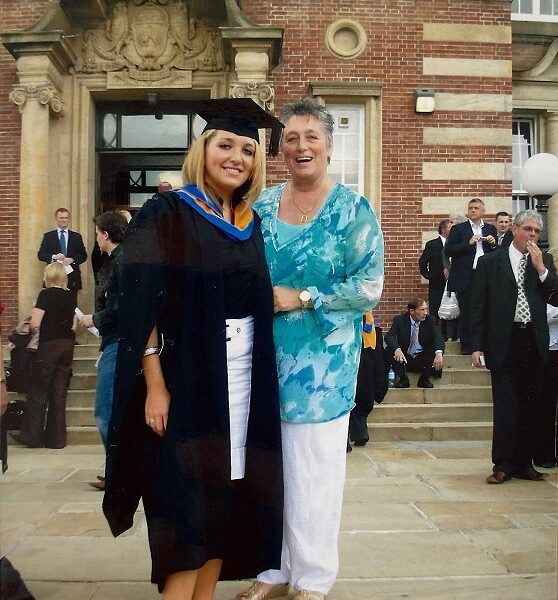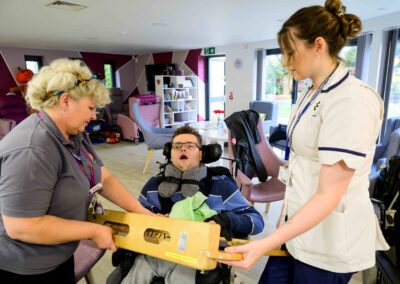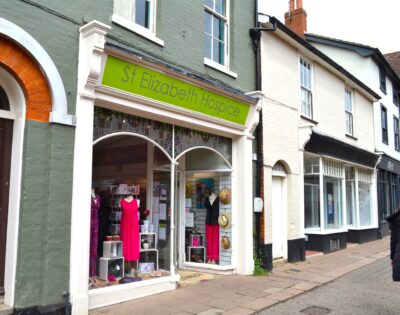Rochelle’s story

Every year St Elizabeth Hospice cares for more than 3,000 patients and their families throughout East Suffolk, Great Yarmouth and Waveney.
This care sees the independent Suffolk charity providing free services – whenever and wherever it is needed, whether at home, in the community or at the hospice – to those living with a progressive or life-limiting illness.
One local resident to receive this care was Shirley Bugg, a familiar face to many in Ipswich, Lowestoft and the surrounding area through her work as a teacher and running Lowestoft Family Bowl alongside her husband James.
Before passing away aged 56, in 2012, Shirley and her family had utilised St Elizabeth Hospice’s day care services, respite care and its 24-hour support phone line, OneCall. Shirley’s eldest daughter, Rochelle, explains why the support both Shirley and the whole of her family received was so vital during difficult times.
“Having the support of the hospice meant the experience of mum’s illness was less frightening as it otherwise would have been. It was so comforting to know St Elizabeth Hospice staff were all down the road and available 24/7 if we needed them,” said Rochelle.
“The care was so personal which made a huge difference and the hospice nurses were able to anticipate our needs as a family – rather than the onus being on me to work out how to access support which, as a young carer, was so invaluable and took a weight off my shoulders.”
Having been recommended the support of the hospice by Macmillan nurses and Ipswich Hospital, Shirley began her care with St Elizabeth Hospice in 2011 alongside support she received from Rochelle as a young carer, then aged 25-years-old, which allowed Shirley to remain in her Ipswich home.
As part of the care, hospice staff provided a combination of practical, emotional and medical support to Shirley and her family. From ensuring she was cared for at home, as were her wishes, to supplying equipment for the family home in order to facilitate this, such as a rise and recline chair and walk-in bath.
Rochelle added: “Mum was adamant she wanted to be looked after at home as much as possible. She was very independent, so ensuring at-home care was an absolute priority for us.
“The hospice did everything to make this happen, while remaining respectful of what we wanted throughout. They also understood that in order for mum to get the best care, I needed to be looked after too – because it was me that was looking after her most of the time.
“Before mum became ill, the word ‘hospice’ came with all kinds of scary connotations for me. I imagined wards full of people crying out in pain and depressive waiting rooms filled with relatives wiping away their tears.
“But the reality was nothing like what my imagination had created. The hospice was warm and welcoming, with a rich community of support and comfort extending far beyond its brick walls.
“The hospice allowed us as a family to live as well as we could, for as long as we could. It took me so long to let them into our lives, as I worried that asking for their help meant I was giving up hope or failing my mum, but once I did, I wondered how we ever survived without them.
“To anyone worried about speaking to the hospice, I would suggest starting by trying a drop-in service, or accessing some support yourself, such as a therapy session, that way you can see for yourself what a warm and welcoming place it is.”



